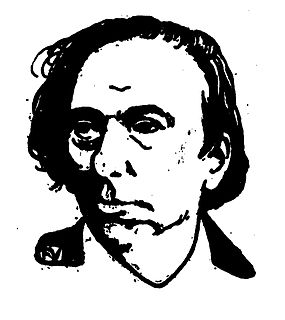A Quote by William Saroyan
It takes a lot of rehearsing for a man to be himself.
Quote Topics
Related Quotes
It appears to Nietzsche that the modern age has produced for imitation three types of man ... First, Rousseau's man, the Titan who raises himself ... and in his need calls upon holy nature. Then Goethe's man ... a spectator of the world ... Third Schopenhauer's man ... voluntarily takes upon himself the pain of telling the truth.
By the fourth or fifth record there was not a lot of time to sit around. We [The Replacements] stopped rehearsing. We stopped getting together and rehearsing. We'd perform, and that would take it all out of us. Then we'd be done touring and we'd be sick of each other. We'd never call each other up and hang out.
For the essence of sin is man substituting himself for God [Gen. 3:1-7], while the essence of salvation is God substituting himself for man [2 Cor. 5:21]. Man asserts himself against God and puts himself where only God deserves to be; God sacrifices himself for man and puts himself where only man deserves to be.
Savings represent much more than mere money value. They are the proof that the saver is worth something in himself. Any fool can waste; any fool can muddle; but it takes something more of a man to save and the more he saves the more of a man he makes of himself. Waste and extravagance unsettle a man's mind for every crisis; thrift, which means some form of self-restraint, steadies it.







































